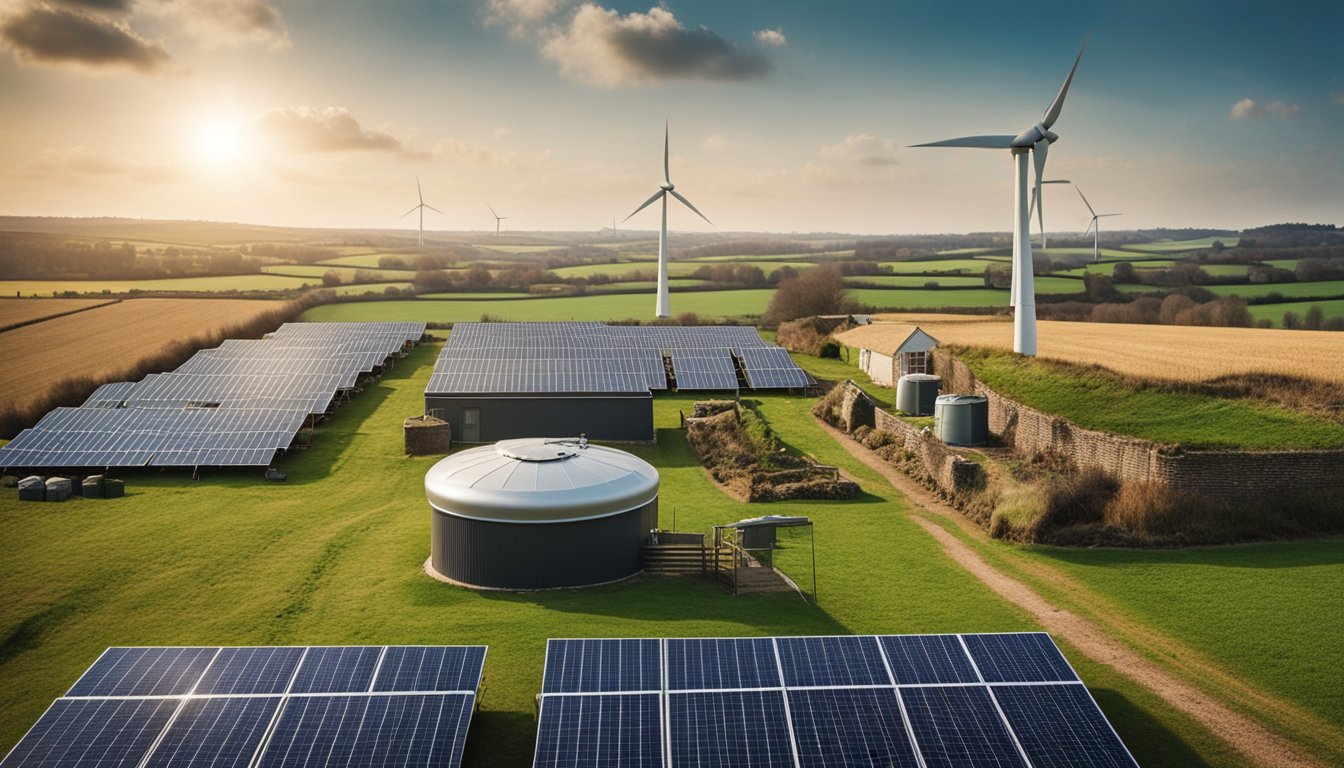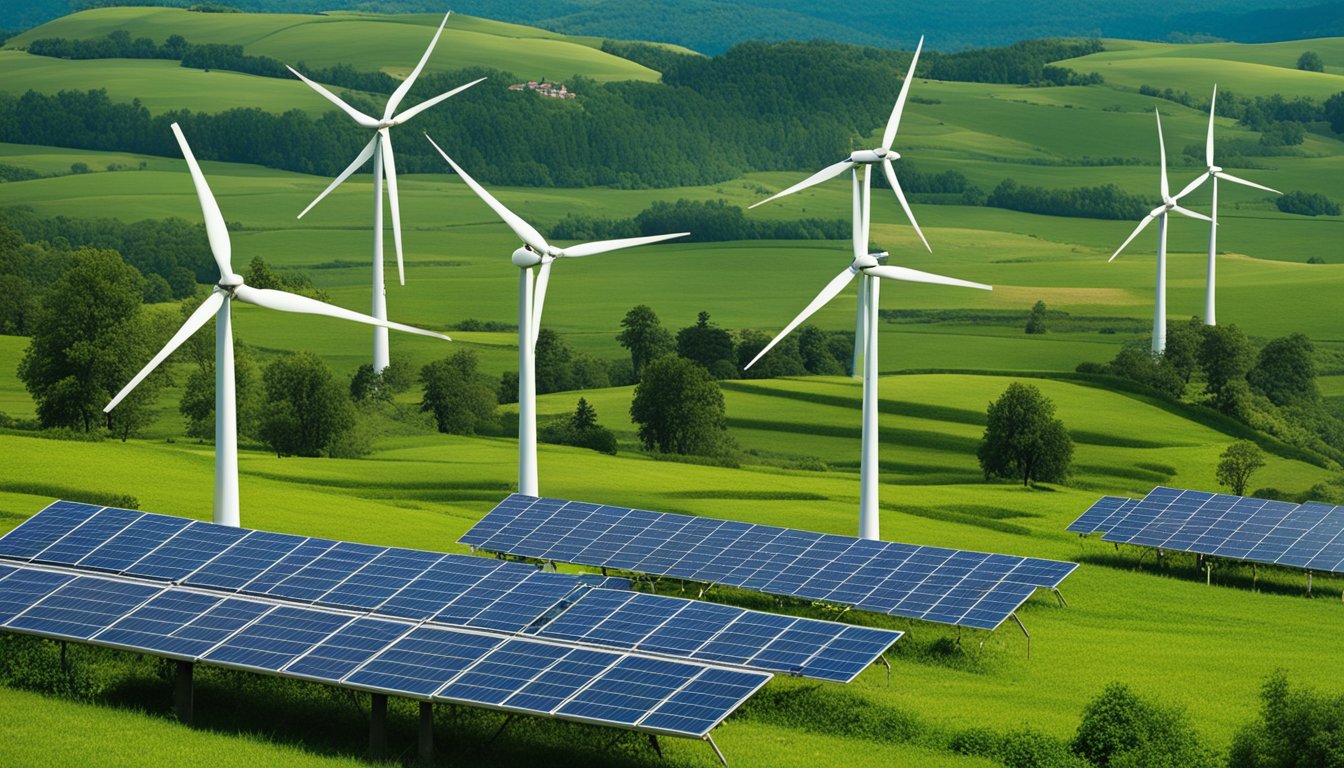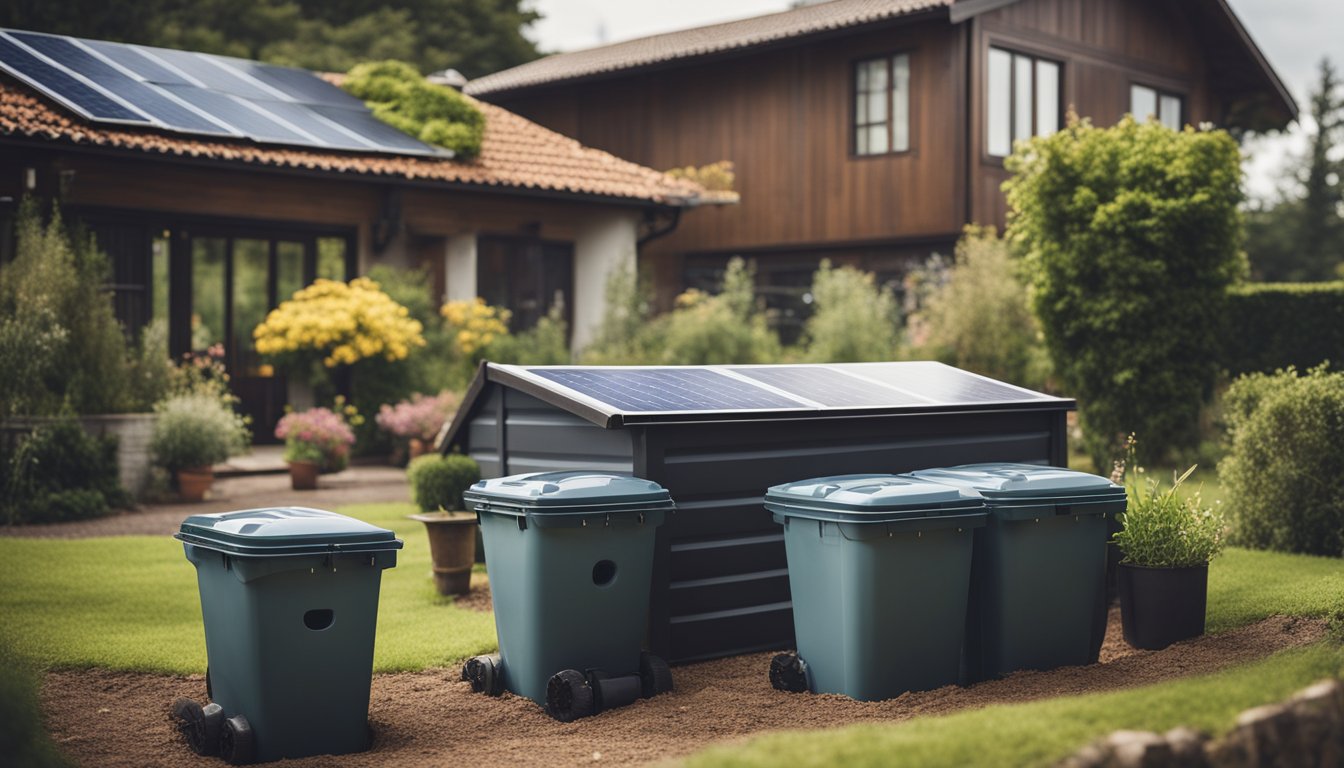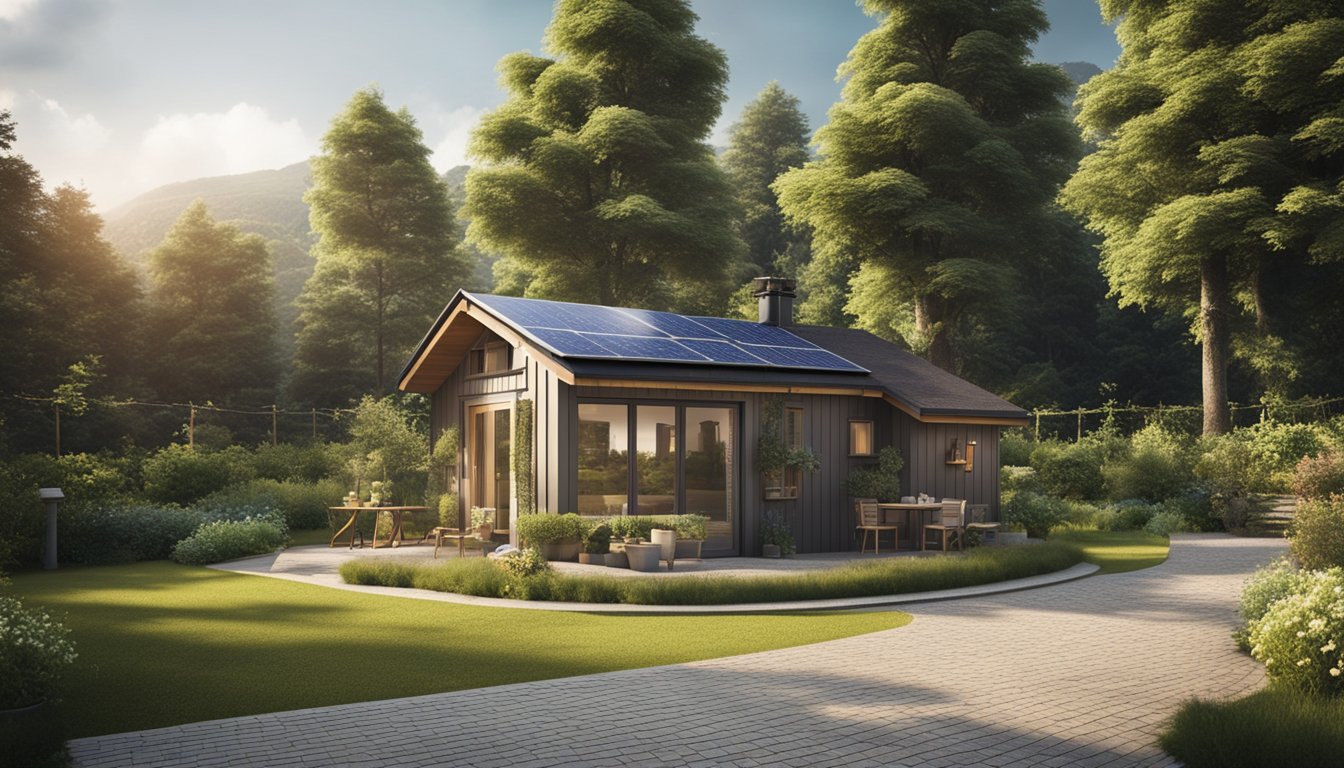Late updated: 18 Dec 2024 09:12
Written by: Oliver Bennett
Eco-Friendly Innovations For Sustainable UK Rural Living: Transforming Countryside Habitats
As we explore the verdant expanses of the UK's countryside, it's clear that eco-friendly innovations are transforming rural living into a beacon of sustainability and growth. From renewable energy solutions that power rural homes to sustainable materials that reshape traditional living, we are on the cusp of a new era that merges tradition with innovation.

Rural areas have become fertile ground for implementing technologies that enhance energy efficiency and minimise environmental impact. Wind turbines and solar panels dotting the landscapes are emblematic of this shift, helping us decrease reliance on conventional energy sources. These changes not only preserve the natural beauty of the UK countryside but also provide substantial economic and environmental benefits.
As we delve into the specifics of how these changes are shaping our future, it’s essential to consider how these eco-friendly practices can be harmoniously integrated into our lives. With a strategic focus on sustainability, innovation, and community, rural living can become an inspiring model of eco-friendly advancement for both current and future generations.
Key Takeaways
- Eco-friendly innovations redefine rural UK living.
- Renewable energy boosts energy efficiency in homes.
- Sustainable practices and materials enhance rural sustainability.
Energising Rural Homes: Renewable Energy and Efficiency

Rural homes in the UK can achieve energy efficiency and greater sustainability by adopting renewable energy solutions. We focus on utilising natural resources and advanced technologies to reduce energy consumption and enhance comfort.
Harnessing Solar and Wind Power
Solar panels and wind turbines are capable of transforming the energy landscape for rural homes. Solar power is ideal for generating electricity and reducing reliance on traditional energy sources. Rural properties, often with generous roof space or land, can benefit from installing these systems.
Wind turbines, albeit more location-dependent, provide another viable option. Rural areas with favourable wind conditions gain significant energy output from small-scale turbines. Both solar and wind solutions reduce carbon footprints and can contribute excess energy back to the grid, providing potential cost savings.
Innovations in Insulation and Heating
Improvements in insulation and heating play a critical role in enhancing energy efficiency. By upgrading to energy-efficient solutions like heat pumps and biomass boilers, rural homes can reduce energy consumption.
Innovative insulation materials can drastically minimise heat loss. Using sustainable materials and advanced techniques, we can ensure homes retain heat better. Additionally, energy-efficient lighting and appliances help maintain lower energy usage. These combined efforts result in lower energy bills and a more eco-friendly environment.
Smart Technology for Energy Management
Embracing smart technology allows for effective energy management in rural homes. Smart thermostats and programmable thermostats provide precise control over heating schedules, optimising energy use throughout the day.
Smart energy management systems can monitor usage, alert us about inefficiencies, and adjust appliances accordingly. Energy-efficient appliances paired with smart home technology result in a seamless and intelligent home environment. Adopting these technologies contributes to meaningful energy conservation and promotes sustainable living.
Sustainable Practices and Materials for Country Living

In the UK countryside, adopting eco-friendly practices can lead to significant environmental benefits. By incorporating sustainable materials and efficient resource management techniques, we can enhance both cost savings and air quality.
Building with Eco-Friendly Materials
Creating homes in rural areas with eco-friendly materials can significantly reduce our carbon footprint. Bamboo, a rapidly renewable resource, serves as an excellent alternative to traditional timber. It is strong, flexible, and requires fewer resources to produce.
Recycled materials such as steel and glass not only minimise waste but also embody much less energy, contributing to environmental conservation. Additionally, using advanced insulation materials enhances energy efficiency, which results in lower heating costs and better thermal comfort.
Emphasising passive design ensures buildings make optimal use of natural light and ventilation. This approach minimises reliance on artificial lighting and reduces energy consumption, supporting sustainable living in the countryside.
Water Conservation and Management
We must adopt effective water conservation strategies to make the most of our natural resources. Rainwater harvesting systems are a sustainable way to collect and store rainwater for household use. This reduces dependence on mains water supplies and helps conserve precious water resources.
Employing low-flow taps and showerheads can significantly decrease water usage. These gadgets maintain effective water pressure while using less water, leading to both conservation and cost savings.
Implementing sustainable techniques like greywater recycling allows for the reuse of water from baths, sinks, and appliances for irrigation purposes. These methods foster efficient water management, ensuring we meet our needs without compromising future generations.
Reducing Waste and Promoting Biodiversity
By reducing waste, we can enhance biodiversity and contribute to a sustainable ecosystem. Initiatives like composting organic matter transform kitchen and garden waste into nutrient-rich soil, reducing landfill contributions and supporting soil health.
Encouraging recycling ensures materials like paper, glass, and plastic are reprocessed and reused, minimising environmental impact. This practice preserves natural resources and reduces greenhouse gas emissions.
Promoting biodiversity involves integrating native plants that support local wildlife, improving air quality and the ecological balance. Using natural cleaning products further protects the countryside from chemical runoff, nurturing a healthier environment for all inhabitants.
Frequently Asked Questions

Our focus is on exploring how various innovations and methodologies can enhance sustainable living in UK rural communities. This encompasses eco-villages, toolkits, and principles that promote sustainability, as well as the economic impacts of eco-friendly innovations.
What are the leading sustainable features implemented in UK eco-villages?
UK eco-villages incorporate solar panels, wind turbines, and rainwater harvesting systems. These features enhance energy efficiency and reduce environmental impacts. Additionally, many eco-villages utilise organic farming and green construction techniques like straw bale and cob building, which both minimise energy use and support sustainable agriculture.
How does the BedZED Toolkit facilitate sustainable development in rural areas?
The BedZED Toolkit offers a framework for integrating sustainable practices into community planning. This includes strategies for renewable energy deployment, water conservation, and waste management. By focusing on these areas, BedZED supports communities in developing comprehensive sustainability plans tailored to rural settings.
What principles of One Planet Living are most applicable to rural UK communities?
The One Planet Living framework advocates for reducing ecological footprints through energy efficiency, sustainable food production, and waste reduction. Rural UK communities can implement these principles by adopting local food sourcing, renewable energy installations, and community-based recycling programmes.
How are eco-friendly innovations impacting the cost of living in UK rural areas?
Eco-friendly innovations such as solar panels and biomass heating systems can lead to reductions in utility bills. Although initial investments might be significant, the long-term cost savings achieved through increased energy efficiency and lower reliance on fossil fuels can make these innovations financially beneficial.
In what ways has Hammarby Sjöstad influenced sustainable living projects in UK rural settings?
Hammarby Sjöstad's integrated approach to energy, water, and waste systems serves as a model for rural projects in the UK. By demonstrating the feasibility of closed-loop systems, it has inspired similar initiatives that aim for self-sufficiency and sustainability within rural communities.
What options are available for communal eco-living in rural parts of the UK?
Communal eco-living options in rural UK include co-housing projects and eco-communities. These typically feature shared resources such as community gardens and renewable energy systems, which promote sustainable living and foster community engagement and cooperation.
